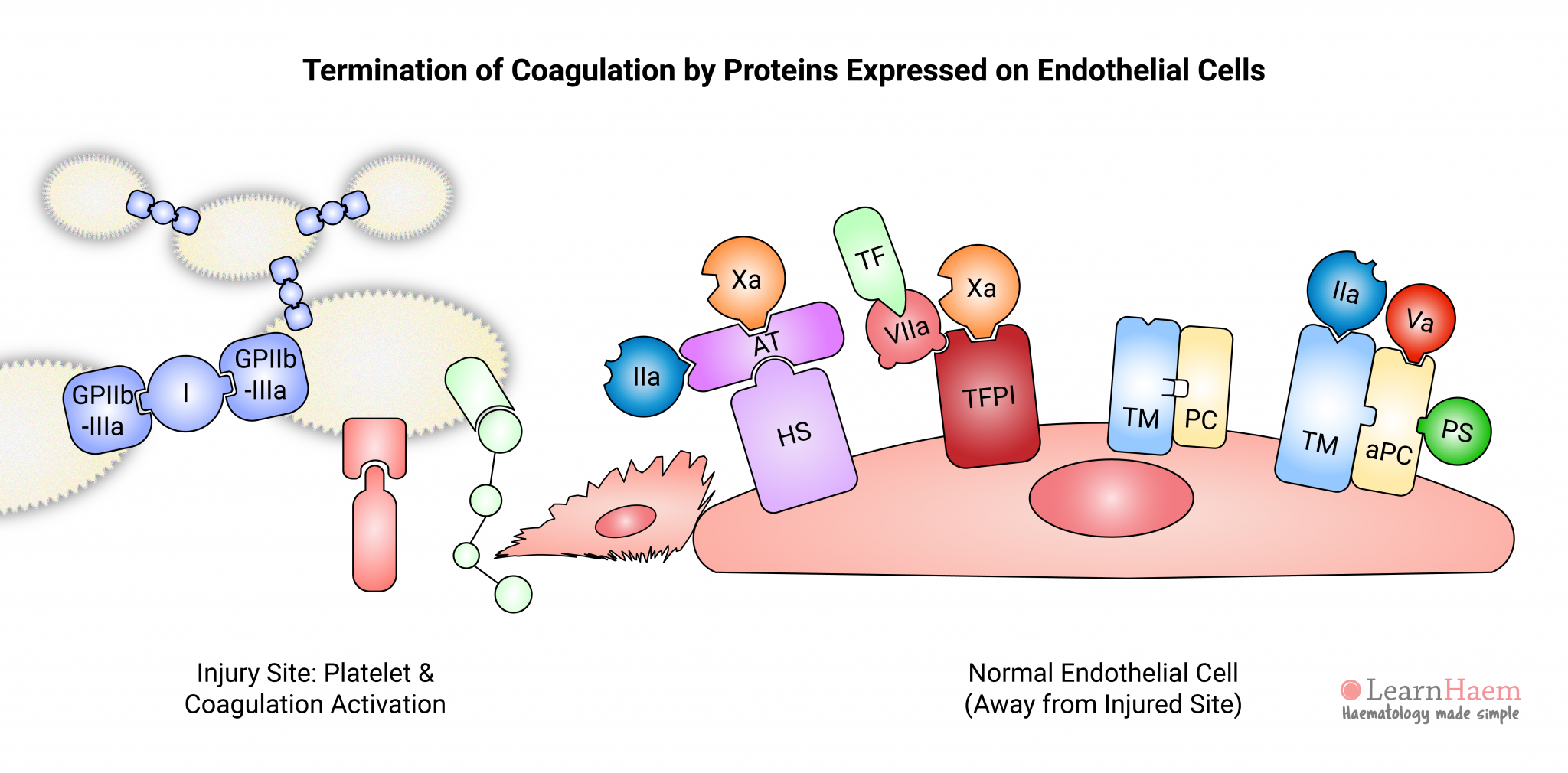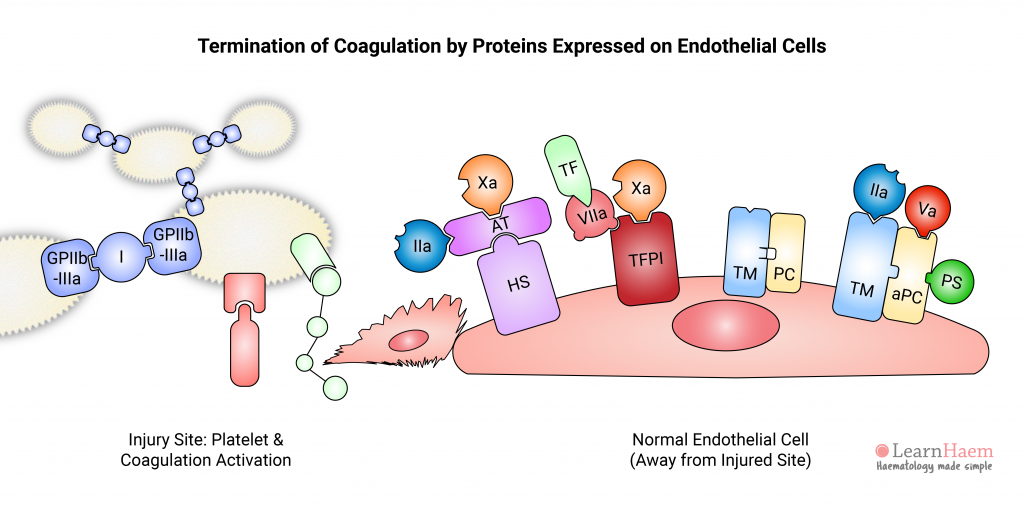The endothelial cell plays a crucial role in the regulation of haemostasis. In vivo, haemostasis requires a balance of both coagulation and anti-coagulation. Endothelial cells express proteins which terminate coagulation and ensure that coagulation does not propagate inappropriately beyond the site of injury. The major regulators of coagulation on the endothelial cell surface are:
- Heparan sulphate (HS) binds to antithrombin, (AT) triggering a conformational change in AT which markedly increases its affinity for thrombin and factor Xa. This results in inactivation of these factors.
- Tissue factor pathway inhibitor (TFPI) binds to the extrinsic tenase complex, inactivating it.
- Thrombomodulin (TM) binds to thrombin which is generated in large amounts in the propagation phase of coagulation. This triggers a confirmational change which activates protein C (aPC). aPC, with protein S as a cofactor, binds to factor Va, inactivating it.



Simple and Useful so far!